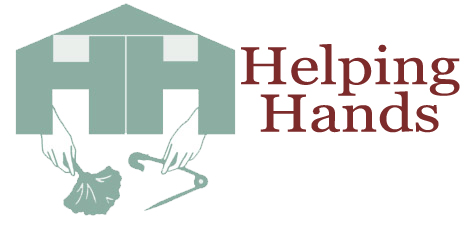Managing A Household Staff During COVID
Managing A Household Staff During COVID
The outbreak of coronavirus disease (COVID-19) is top-of-mind for many people especially as families and individuals are quarantined to help stop the spread of the virus. Urban areas may be at an increased risk because they have a denser, more-traveled population. If you employ a nanny, housekeeper, cook, or any other domestic staff positions you may be wondering what to do if your family and/or staff members develop symptoms.
This blog offers some guidance on how to manage your domestic staff during this coronavirus outbreak. For the latest updates and detailed information on prevention, symptoms, treatment, and how the disease spreads, visit the Center for Disease Control and Prevention’s web page on Coronavirus Disease.
A. Take Preventative Measure At Home
Before we get into specifics, below are check lists of things to do to prevent spreading germs at home.
- Wash your hands frequently – especially when you return home after being out in public – and ensuring your staff and children do the same.
- Placing anti-bacterial hand sanitizers throughout your home and encouraging everyone to use them frequently.
- Staying away from people who appear to be sick.
- Covering your mouth and nose with your bent elbow when you sneeze or cough, dispose of tissues immediately and use hand sanitizer.
- Seeking medical attention if you begin to feel sick.
You should also try to disinfect frequently touched surfaces such as:
- Children’s toys
- Doorknobs and handles
- Light and dimmer switches
- Computers, tablets, and laptops
- Landline telephones
- Chair and arm rests
- Kitchen countertops
- Dining room table and chairs
- Sinks, toilets, and faucets
- Remote controls
- Alarm code keypads
- Home office desks, printers, and equipment
This can be an opportunity to learn how to improve your sanitation practices on an on-going basis, not just in the rare instances of a virus outbreak.
B. Discuss Coronavirus with your family
Your kids are probably hearing lot’s of things about the coronavirus at school. Much of what they hear may or may not be true. You and your child’s care provider should discuss age-appropriate information about the virus and avoid talking about your fears. Talk about the facts and what you are doing to keep them safe.
C. Create A Prevention Plan
Meet with your household staff member or members to discuss an approach to managing their household duties in a way that keeps germs from spreading. Beside preventative measure in the home your staff members may try to limit using public transportation, minimize the number of errands they run outside the home and limit visits to public places like playgrounds, laundry mats, libraries or Museums.
If you have staff members that have to use use public transportation you might adjust their hours so they do not have to travel during peak rush hours. Another idea may be to hire a ride sharing service. Neither of these idea are fool proof. But they could cut down on possible exposure.
D. Share Relevant Information
Check your state, city and/or county government websites to see if they offer email or text notifications with coronavirus updates. Both you and your staff should sign up and discuss any new developments and how they may impact their work. If you have children, their school or pre-school may also send emergency notices.
Talk with your household staff about recent travels. Ask if they have visited areas with high coronavirus outbreaks. If they have you may want to either have them quarantine either in your home or theirs for an appropriate time, usually two weeks. Of course, if anyone working in your home are showing or feeling symptoms, be sure to make sure everyone in the household knows and see a doctor immediately.
E. Initiate An Action Plan
For each of the above scenarios you may want to develop an action plan. These scenarios should e discussed and a plan should be determined now, not when the situation arises.
- What If Your Domestic Staff Member Becomes Sick Or develops Symptoms?
If you have a staff member who becomes sick or becomes aware that they may have had contact with an infected person, you may not want them to come to your home. If you have a household staff member that gets sick or has been in contact with infected people their paid sick leave may provide enough income. You can get more information about sick leave requirements here. If your household staffer will be out for an extended period of time due to the virus, how will they be paid? They could very quickly use up their paid sick time and vacation time and still be out of commission. Consider wether you will be able to help them financially until they can return to work? Remember you may also need to pay a back-up caregiver while your nanny is out sick. Your staffer may be able to recover some of their lost wages if your state requires disability insurance, which covers accidents and illnesses that occur outside of work.
- What If You Become Sick Or Exposed To The Virus?
What if you have been exposed or has the symptoms of coronavirus? Does your staff still report for work? Will you be relegated to a certain room or part of the house? How will you limit your contact with the children? Will you quarantine your entire family as a safety precaution? Will you want your staff people to take on extra responsibilities like house cleaning, nanny care, laundry, or meal preparation?
- What If A Child Becomes Sick Or Develops Symproms?
Your child has been exposed to the virus, developed symptoms, confirmed to have the virus or is sick. Each of these situations may have a different plan of attack. If you have a child who is sick and other children who aren’t, your nanny could still work and care for the healthy children while the sick child is quarantined in a different part of the home and looked after by a parent. Again, if one family member develops symptoms or could have been exposed, you may want to self-quarantine your entire family to help stop the spread of the virus. If your nanny is told to stay home and not work because your child is sick or your family is quarantined, they should still be paid as usual.
- What If Your Child’s School Closes?
If your children are in school, and you have a part-time nanny for after school, is your nanny available to work full-time if your children’s school closes due to coronavirus? Let’s say your nanny is available or you find back-up care. What guidelines will you put in place to help reduce the chance of exposure? Will playdates, public outings and/or socializing with friends be allowed? What should happen during the day considering screen time and outdoor play?
- What If You Are Asked To Work From Home?
You should still have your domestic staff report to work as usual. But you may want to determine how to stay away from each other while you work from home.
F. Prepare For Back-Up Care If Necessary
If you have a staff member who is sick and can’t come to work who will take care of the chores? Can you or your spouse fill in? Do you have family members, friends or neighbors who can help? Is there a household staffing agency you can contact for temporary help?
G. Stay Positive
This may be one of the most challenging things to do. But if you plan ahead, you should have reason for optimism as you will not have to worry about how to handle whatever the coronavirus throws your way. Be assured, like all other viruses, this one will pass too.

